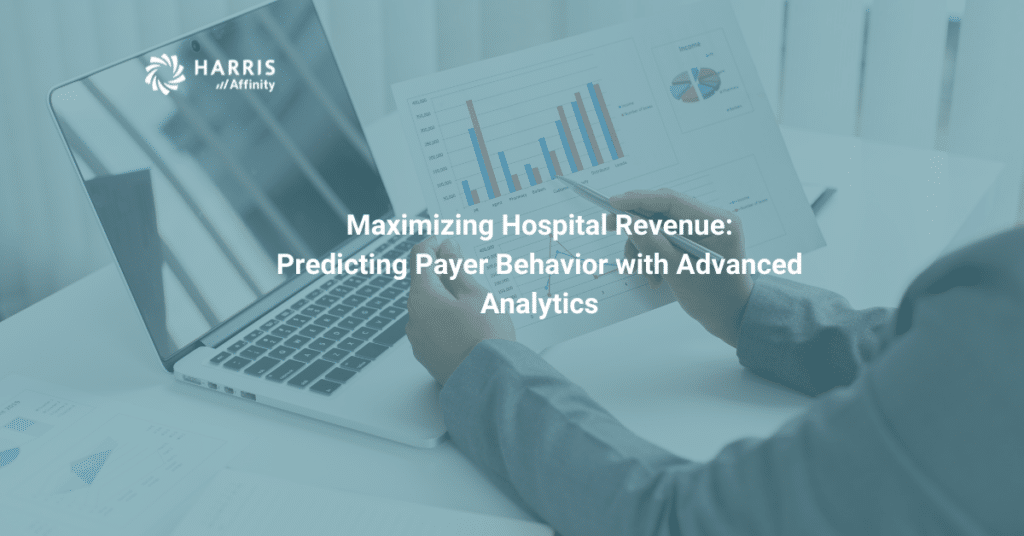Hospitals are constantly challenged to optimize revenue streams while navigating the complexities of payer behavior and reimbursement dynamics. Lower reimbursements are a continued concern for hospital CFOs. This is causing hospitals to increasingly turn to advanced analytics within costing systems to predict payer behavior and refine reimbursement modeling strategies.
Understanding the Importance of Predicting Payer Behavior
Payer behavior plays a critical role in determining hospitals’ financial health. From negotiating reimbursement rates to managing claims processing, hospitals must anticipate and adapt to payer preferences, trends, and policies. However, predicting payer behavior has historically been challenging, often leading to revenue uncertainties and financial risks.
The Data Revolution: Transforming Healthcare Finance through Analytics
Advanced analytics within costing systems offer a solution to this challenge by leveraging historical data, machine learning algorithms, and predictive modeling techniques to forecast payer behavior with precision. By analyzing vast datasets encompassing claims history, payer contracts, reimbursement rates, and market trends, hospitals can uncover invaluable insights into payer behavior patterns. This predictive capability enables hospitals to anticipate shifts in reimbursement patterns, identify potential revenue risks, and strategize proactive interventions to mitigate financial impacts.
Improving Payer Behavior through Advanced Costing Methods
One of the key benefits of advanced analytics within costing systems is the ability to enhance payer behavior. By leveraging predictive insights, hospitals can:
- Enhance Contract Negotiations: Predictive analytics enables hospitals to gain a deeper understanding of payer preferences, risk profiles, and market trends. Armed with this knowledge, hospitals can negotiate more favorable reimbursement terms that align with their financial objectives and mitigate risks associated with payer behavior variability.
- Minimize Denials and Rejections: Predictive modeling empowers hospitals to identify potential claims denials and rejections before they occur. By proactively addressing coding errors, documentation deficiencies, and eligibility issues, hospitals can minimize revenue leakage and accelerate revenue cycle efficiency.
- Optimize Revenue Cycle Management: Advanced analytics within costing systems enable hospitals to streamline revenue cycle processes and identify opportunities for optimization. By analyzing claims data, payer trends, and operational inefficiencies, hospitals can implement targeted interventions to improve claims processing, accelerate reimbursement, and enhance cash flow.
5-Step Guide to Modernizing Hospital Finance
Reimbursement Modeling: Navigating Financial Complexity
Reimbursement modeling is a critical component of revenue optimization in hospitals. According to the Health Care Payment & Learning Action Network (LAN), over half of healthcare payments in 2022 were made through value-based reimbursement models. transitioning to value-based reimbursement is not easy for all healthcare organizations. These models require extensive data analytics capabilities, population health management programs, and the ability to successfully use electronic health records (EHRs) for documentation and reporting. By integrating predictive analytics into reimbursement modeling, hospitals can:
- Forecast Future Revenue: Predictive models enable hospitals to forecast future revenue streams based on various scenarios, payer trends, and market dynamics. By simulating different reimbursement scenarios, hospitals can assess the financial impact of potential changes and make informed decisions about resource allocation and strategic initiatives.
- Evaluate Contract Performance: Reimbursement modeling allows hospitals to evaluate the financial performance of payer contracts and assess their impact on overall revenue. By modeling different contract scenarios and analyzing key performance indicators, hospitals can identify opportunities for contract optimization and renegotiation.
- Drive Informed Decision-Making: Reimbursement modeling empowers hospitals to make data-driven decisions about contract negotiations, service line investments, and revenue optimization strategies. By leveraging predictive insights, hospitals can align their financial objectives with payer behavior and market trends, driving sustainable revenue growth and financial success.
Optimizing a Bundle Payment System w/Decision Support Data
Leveraging Advanced Analytics for Revenue Optimization
Advanced analytics within costing systems offer hospitals a powerful tool to predict payer behavior, refine reimbursement modeling strategies, and optimize revenue generation. By harnessing predictive insights and enhancing reimbursement modeling capabilities, hospitals can mitigate financial risks, maximize revenue opportunities, and achieve sustainable financial performance in an increasingly complex healthcare environment. Embracing innovation in revenue management is not only a strategic imperative but a transformative journey towards financial resilience and success. At Harris Affinity (ADS) we have experience with helping hospitals transition to advanced costing methods. We have helped hospitals to see cost drivers and accurately forecast revenue to increase profit margins or allowed the hospital to see the best course of action for costs. Whether a hospital is ready to implement a complete transition to advanced costing methods or a hybrid approach, we have done it. To understand more on how we have helped hospitals optimize their revenue, contact us

